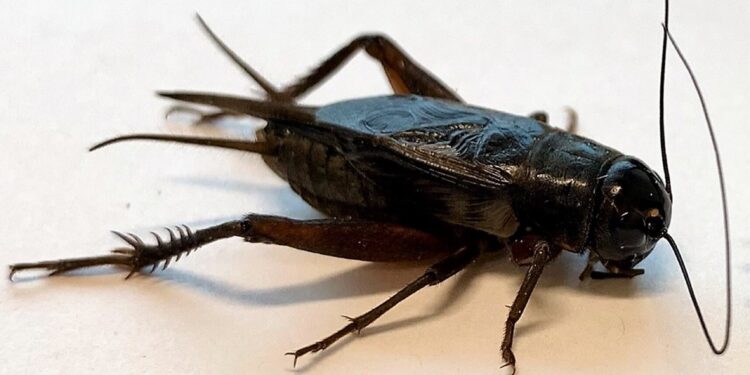Male Pacific field cricket (T. oceanicus). Credit: Jon Richardson
A trio of biologists from the University of Minnesota has discovered that when male crickets need to conserve energy, they reduce their mating filter to focus exclusively on females.
In their article published in the Proceedings of the National Academy of SciencesJon Richardson, Isabelle Hoversten, and Marlene Zuk describe their experiments with sex filters on Pacific field crickets fed a variety of diets and what they learned from them.
Previous research has shown that some biologists, including zoologists, have overlooked data on same-sex sexual behavior (SSB) in their research, making it more difficult to understand this behavior in non-human creatures. Nevertheless, research has shown that SSB is quite common in nature among many creatures.
This behavior is studied because it tends to be energy-intensive and can even put some creatures at risk, with no apparent evolutionary benefit. In this new study, the research team focused their efforts on the idea of mating filters, where a creature increases or decreases its area of interest regarding its sexual behavior.
They chose to study aspects of the sexual behavior of male Pacific field crickets, a creature known to attempt to mate with both males and females of its own species. Previous research has shown that male interest can be measured by tracking the intensity, or lack thereof, of crickets’ short-range courtship songs. Females were found to be less receptive to males that failed to produce quality short-range songs.
The experiment involved feeding some males a high-calorie diet and others a low-calorie diet. Members of each group were then given access to other crickets fed a normal diet to see if they would attempt to mate with them.
By observing and recording the behavior of the test males, the research team found that hungry crickets were less likely than well-fed crickets to attempt to mate with other males — an example of their mating filter narrowing. They saw no such change in mating attempts with females. The researchers also saw no change in males that had been well-fed.
More information:
Jon Richardson et al., Male crickets in poor condition have less homosexual sexual behavior, Proceedings of the National Academy of Sciences (2024). DOI: 10.1073/pnas.2408811121
© 2024 Science X Network
Quote:Cricket study suggests mating filter shrinks as males try to conserve energy (2024, September 25) retrieved September 25, 2024 from
This document is subject to copyright. Apart from any fair dealing for the purpose of private study or research, no part may be reproduced without written permission. The content is provided for informational purposes only.



